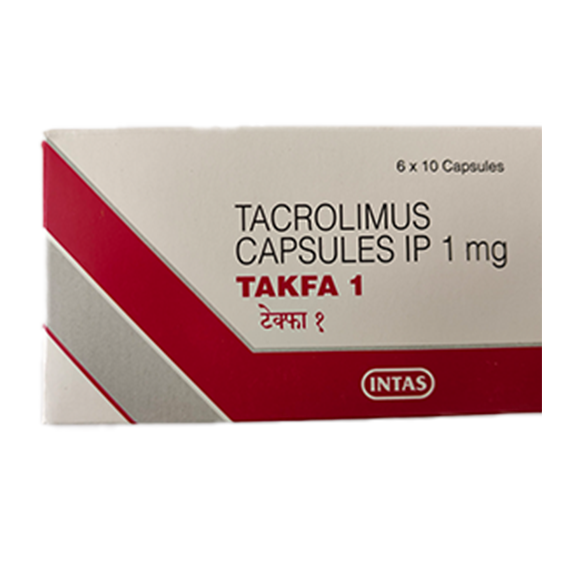Product Introduction
Takfa 1mg is an essential immunosuppressive medication used primarily for preventing organ rejection in transplant patients. It also finds application in managing autoimmune diseases like rheumatoid arthritis and psoriasis. By reducing the immune system's activity, Takfa helps in preventing the body from attacking its own tissues or transplanted organs.
This medication plays a pivotal role in post-transplant care and the management of various autoimmune conditions. It has proven efficacy in reducing inflammation and stabilizing the immune response, which helps patients lead a healthier life.
Uses of Takfa 1mg
Takfa 1mg is primarily used for:

- Organ Transplant Rejection Prevention – Reduces the risk of organ rejection after transplant surgeries.
- Autoimmune Disease Management – Used in conditions like rheumatoid arthritis and psoriasis to suppress the overactive immune response.
- Enhances Graft Survival – Improves the long-term survival of transplanted organs by controlling the immune response.
Takfa 1mg plays a crucial role in enhancing graft survival and maintaining the effectiveness of transplant treatments.
Side Effects of Takfa 1mg
Common side effects of Takfa 1mg may include:
- Headache
- Nausea
- Diarrhea
- Tremors
- Insomnia
Less Common Side Effects
Less frequent but more serious side effects may include:
- Kidney Dysfunction
- Increased Risk of Infections
- Elevated Blood Pressure
- Liver Toxicity
We are pleased to offer you this product.
Takfa 1mg is an effective treatment for managing organ transplant rejection and autoimmune diseases. It helps patients in post-transplant recovery and controlling autoimmune conditions, ensuring better long-term health outcomes.
- Take as directed by your healthcare provider, usually once or twice daily.
- Monitor kidney function and blood pressure regularly.
- Do not skip doses and follow all instructions carefully.
Takfa 1mg works by suppressing the immune system through inhibition of T-cell activation, reducing the risk of organ rejection and controlling the symptoms of autoimmune diseases.
- Effective in preventing organ rejection.
- Helps manage autoimmune diseases.
- Supports long-term graft survival.
- Well-tolerated with minimal side effects in most patients.
- Regular blood tests to monitor kidney function and liver health are essential.
- Avoid exposure to infections and practice good hygiene.
- Inform your doctor of any signs of organ rejection or serious side effects.

